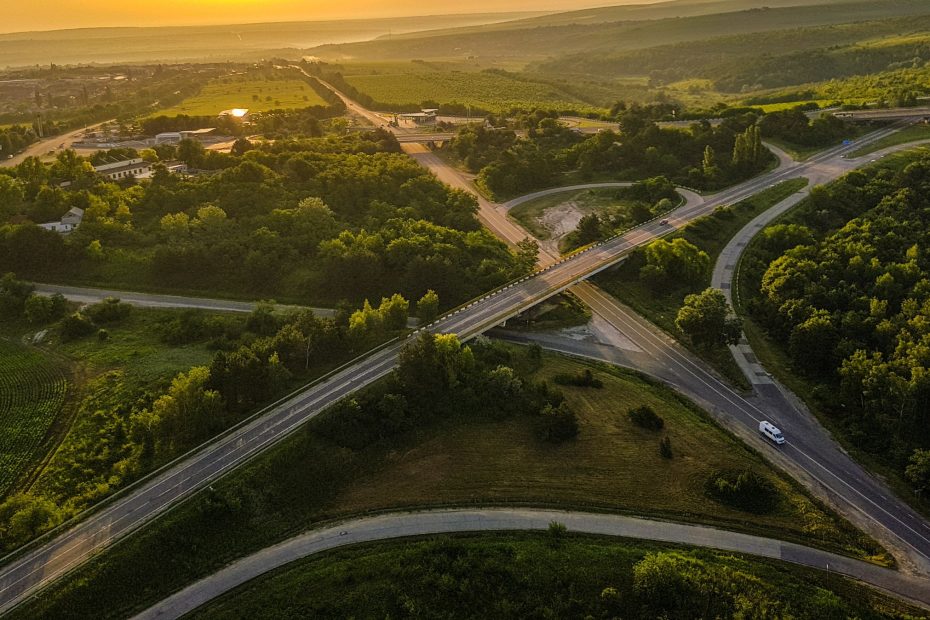Moldova may be Europe’s least visited country, but its bucolic countryside has much to offer adventurous travelers looking to go off the beaten path. With ancient monasteries, extensive wineries, quaint villages, and unspoiled natural areas, Moldova’s rural landscape provides a window into the country’s rich history and culture. Here are some of the top reasons to head out and embrace the beauty of Moldova’s countryside.
Table of Contents
Marvel at Historic Monasteries and Cave Complexes
Some of Moldova’s most impressive sights are its ancient monasteries and cave complexes that have been carved out of limestone cliffs and hillsides. Orheiul Vechi, an open-air museum and UNESCO site, contains ruins of fortifications and cave monasteries dating back as early as the 10th century. Visitors can hike around the remains of settlements and climb 130 steps to reach a small church. The nearby Tipova Monastery is cut directly into a towering, sheer cliff face, creating a dramatic setting. Saharna Monastery, known as the “Sistine Chapel of the East,” sits precariously on an 80-meter high cliff, with brilliantly colorful frescoes inside its church.
Sip Moldova’s Famous Wines Underground
Moldova is renowned for its winemaking, with a tradition stretching back over 500 years. No trip is complete without touring one of Moldova’s massive underground wine cellars. At Cricova, you can ride an electric car through its 120 kilometers of limestone tunnels, stopping for tastings along the way. Founded in 1952, Cricova holds over 1.25 million bottles, including historic vintages dating to 1902. Milestii Mici holds the Guinness Record for the biggest wine collection in the world. Its 200 km labyrinth contains 2 million bottles, including Cabernet Sauvignon aged for over 55 years.
Soak in the Peace of the Countryside
Beyond its historic sights, Moldova’s pastoral countryside provides a sense of serenity. The slow pace of rural life hearkens back to older times. You’re likely to see farmers driving horse-drawn carts and elderly women in headscarves working in the garden or hanging laundry. The quiet countryside comes alive during festivals, where locals don traditional costumes and dance to live folk music. Mushroom hunting in the forests and swimming or fishing in Moldova’s lakes are favorite pastimes. Picnicking in a meadow or orchard makes for an idyllic afternoon.
Get Active Outdoors
Moldova’s varied landscape provides plenty of opportunities for outdoor activities. Hundreds of miles of hiking trails wind through gorgeous landscapes where you might spot foxes, deer, and over 160 species of birds. Or challenge yourself by cycling or horseback riding over rolling hills covered in vineyards and lush forests. The Nistru River offers spots for watersports like kayaking through scenic gorges, stand-up paddleboarding, or splashing down a waterfall slide. End the day relaxing in a natural hot spring.
Experience Agritourism
Agritourism is a growing trend in Moldova’s countryside. Staying on a family farm, or agro-pension, lets you experience authentic country living while supporting local communities. Wake up to roosters crowing, help milk the cows or goats, gather eggs, and enjoy generously portioned home-cooked meals made with ingredients from the farm. Visit the owners’ orchard or vegetable garden, learn to make wine, jam, or traditional dishes like placinte pastries. Tour the local markets to buy fresh produce, cheese, honey, and handmade crafts directly from the source.
Preserve Moldova’s Traditions
Rural Moldova provides a direct window into the country’s proud traditions. Attend a folk festival to see exuberant music and dance performances in colorful regional costumes. Typical dishes like mămăligă (a cornmeal mush), zeama (sour chicken soup), and plăcinte stuffed with cheese, cabbage, or potatoes reflect Moldova’s agrarian heritage. Moldova’s famed Orthodox painted monasteries exemplify skill passed down through generations of artisans. By embracing Moldova’s enduring rural traditions, travelers help keep the country’s heritage alive.
Visiting the Moldovan countryside offers a chance to step back in time and connect with the country’s deep roots. Its striking natural landscapes, wine culture, monasteries, outdoor recreation, and traditional ways of life beckon you to slow down, unplug, and rejuvenate. By touring Moldova’s bucolic countryside, you’ll come away with a greater appreciation for its welcoming people and their proud heritage.
Conclusion
Moldova’s unspoiled countryside holds unexpected treasures for those seeking unique destinations beyond well-trodden tourist trails. Ancient monasteries, historic wine cellars, hiking trails, outdoor adventures, agritourism, and enduring cultural traditions await to be discovered. Venturing into the Moldovan countryside provides a soul-stirring experience where you can embrace spectacular scenery and warm hospitality. Discover the beauty of Moldova’s rural heartland for yourself.
FAQs
What is agritourism?
Agritourism involves visiting a working farm or any agricultural, horticultural or agribusiness operation for the purpose of enjoyment, education or active involvement in the activities of the farm or operation.
What are some typical Moldovan dishes I should try in the countryside?
Some classic Moldovan countryside dishes to try include mămăligă (cornmeal mush), zeama (sour chicken soup), plăcinte (stuffed pastries), sarmale (stuffed cabbage rolls), and ghiveci (mixed vegetable stew).
What is the best way to experience folk music and dance?
Attending festivals such as the Wine Festival, Apple Festival, or Village Day will allow you to experience authentic Moldovan folk music and dance performances.
What activities are best for exploring Moldova’s natural scenery?
Excellent activities for taking in Moldova’s landscapes include hiking, cycling, horseback riding, camping, swimming, kayaking, and simply having a picnic in the countryside.
What time of year is best to visit Moldova’s countryside?
Late spring through early fall is ideal, when weather is mild and vineyards and orchards are blooming. Summer is peak season for agritourism. Moldovan wine festivals happen in October.
